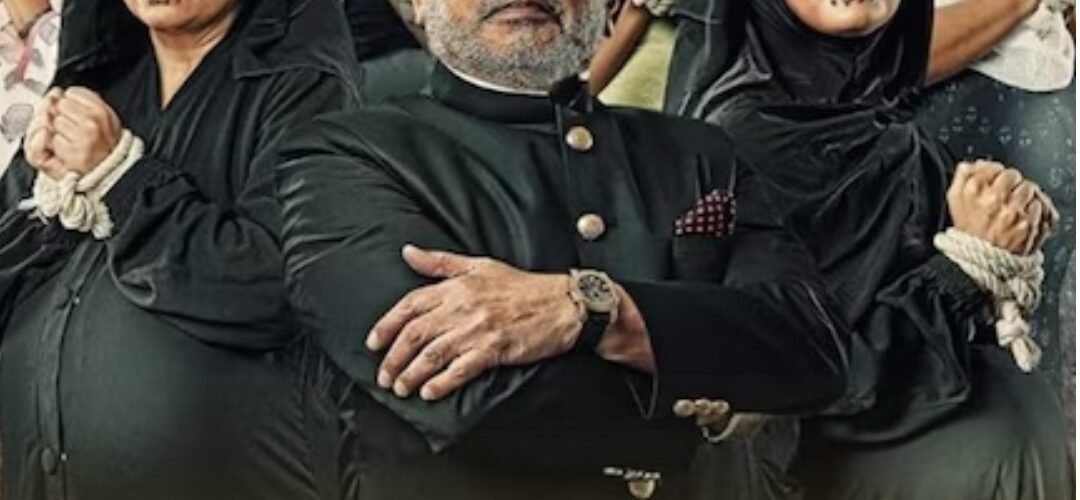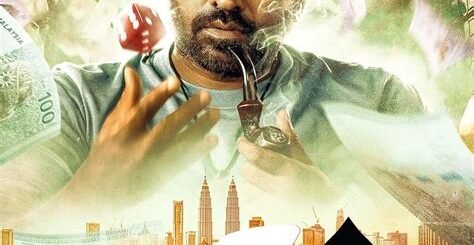Depths of Patriarchy and Religious Misrepresentation: A Review of Hamare Baarah

Back in 2011, the Pakistani film Bol created quite a stir for its bold and courageous examination of societal issues such as consent, toxic patriarchy, and misogyny. It posed a poignant question: why is giving birth without any family planning not considered a sin? Fast forward to today, and Annu Kapoor starrer Hamare Baarah delves into similar contentious themes, challenging orthodox and radical beliefs within Islam and questioning the glorification of oppression under the guise of religious piety.
Setting and Plot Overview
Hamare Baarah is set in the bustling area of Aminabad in Lucknow, opening with a powerful scene of a woman named Alfia (played by Aditi Bhatpahri) moving the Lucknow High Court to file a case to secure her stepmother’s right to abort. Her plea is dismissed with contempt, as she faces derision and a lack of empathy from the legal fraternity. It is then that she meets a woman lawyer renowned for fighting for justice rather than money, particularly in polygamy cases.
Back home, Alfia is one among eleven siblings. Her father, Mansoor Ali Khan Sanjeri (played by Annu Kapoor), is a staunch and orthodox Muslim who strictly adheres to madrasa-style education, viewing Western schooling as a pathway to moral decay. His rigid beliefs are highlighted by his oppressive control over his children, both sons and daughters, who he expects to follow his interpretation of Allah’s teachings without question.
The Conflict
Mansoor’s first wife, Salma, died after multiple childbirths, and his second wife, Rukhsar, is on a similar path. Rukhsar’s pregnancies have weakened her uterus significantly, and her life is at risk with her twelfth pregnancy. However, Mansoor sees the idea of abortion as a rejection of Allah’s blessings, leading Alfia to fight vehemently for her stepmother’s right to choose, much to her father’s dismay.
Themes and Social Commentary
Hamare Baarah is laden with themes that challenge societal norms and religious orthodoxy. It brings to light the often-taboo subjects of polygamy, patriarchal oppression, and the misinterpretation of religious teachings to justify misogyny.
Patriarchy and Misogyny
The film offers a stark portrayal of toxic patriarchy. Mansoor’s character is a representation of male dominance cloaked in religious justification. His tyrannical behavior, especially towards his daughters, underscores the gender inequality prevalent in certain conservative societies. The scenes where Mansoor violently opposes his daughter Zareen’s aspirations to participate in a musical reality show, and when Rukhsar pleads to avoid divorce through triple talaq, are particularly distressing and highlight the deep-seated patriarchal norms that suppress women’s voices and ambitions.
Religious Misrepresentation
Credit must be given to writer Rajan Agarwal, who skillfully crafts a narrative that criticizes the misrepresentation and misinterpretation of Islam without attacking the religion itself. The film points out how religious texts can be distorted to uphold oppressive practices, while also showcasing characters who adhere to the true spirit of their faith by advocating for justice and equality.
Character Analysis and Performances
Mansoor Ali Khan Sanjeri
Annu Kapoor’s portrayal of Mansoor is both compelling and troubling. He effectively embodies the character’s authoritarian demeanor, making the audience despise his actions while also craving his redemption. However, his performance occasionally veers into excessive dramatization, which can detract from the film’s gravitas.
Alfia
Aditi Bhatpahri as Alfia is a standout performer in the film. Her character’s resilience and determination to fight for her stepmother’s rights against all odds is inspiring. Bhatpahri’s portrayal captures the emotional turmoil and strength of a young woman challenging deeply entrenched patriarchal norms.
Supporting Cast
Paritosh Tripathi and Rahul Bagga deliver impressive performances, adding depth to the narrative. Parth Samthaan’s portrayal of Danish brings a necessary balance to the intense storyline, providing a supportive presence for Alfia. Ashwini Kalsekar and Manoj Joshi, playing the roles of lawyers, deliver top-notch performances that enhance the courtroom drama aspect of the film.
Cinematic Execution
Narrative and Pacing
While Hamare Baarah tackles important issues, its execution is marred by uneven pacing and an over-reliance on melodrama. The film’s runtime of 2 hours and 28 minutes feels prolonged, with song sequences that disrupt the narrative flow. The courtroom scenes, which are pivotal to the storyline, become repetitive and lose their impact over time.
Visual and Period Authenticity
The film attempts to recreate the vibrant atmosphere of Lucknow but falls short in convincingly depicting the period setting. The lack of detailed historical context and visual authenticity detracts from the immersive experience that a period drama should provide.
Strengths and Weaknesses
Strengths
Bold Subject Matter: The film courageously addresses controversial and critical issues related to religious orthodoxy and gender inequality.
Strong Performances: The cast, particularly Aditi Bhatpahri and Annu Kapoor, deliver powerful performances that drive the film’s emotional core.
Nuanced Writing: The screenplay tactfully critiques the misrepresentation of Islam without denigrating the religion, emphasizing the need for true understanding and compassion.
Weaknesses
Excessive Dramatization: The film’s tendency towards high drama diminishes the serious tone it aims to establish.
Pacing Issues: The lengthy runtime and repetitive sequences detract from the film’s impact.
Lack of Depth: The film misses opportunities to delve deeper into the emotional and psychological aspects of its characters and the broader social implications of the issues it addresses.
Comparative Analysis with Bol
Comparing Hamare Baarah with Bol, it becomes evident that while both films address similar themes, Bol achieves a more nuanced and sensitive portrayal of its subject matter. Bol successfully integrates its social commentary with a compelling narrative and well-rounded characters, making it a more impactful and memorable film.
Hamare Baarah is an ambitious film that seeks to shine a light on critical social issues within the framework of a conservative religious setting. While it succeeds in raising important questions about patriarchy and religious misrepresentation, its execution falls short of its potential. The film’s strength lies in its bold subject matter and strong performances, but it is hampered by excessive dramatization and pacing issues.
Despite its flaws, Hamare Baarah serves as a significant contribution to the ongoing dialogue about gender equality and religious reform. It encourages viewers to reflect on the ways in which societal norms and religious beliefs can be manipulated to oppress, while also highlighting the importance of courage and resilience in the fight for justice and human rights













